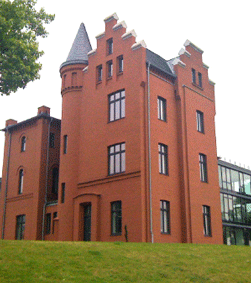Project introduction
The Käte Hamburger Center for Advanced Study in the Humanities “Law as Culture” contributes its expertise in the humanities and jurisprudence to the analysis of law, taking into account the reality of ongoing globalisation and differentiating between cultures in the process. In so doing, it reflects different systematic dimensions of law as a cultural fact, namely symbolic cultures and ritual dynamics, normativity and normative pluralism, and issues of the force of law and of organisational culture.
During the first funding phase (2010-2016), this multi-dimensional concept of law gave rise to an analytical approach that
- understands law as a complex cultural fact,
- takes seriously the interrelationship between the legal and religious spheres,
- gives special attention to the changed conditions of law in the context of globalisation processes,
- gives particular consideration to the growing risk of conflicts between legal cultures as a result of these changed conditions, and
- goes on the trail of law in the realm of aesthetics and its interactions in order to
- find answers to the questions of how the balance between particular interests and concepts of law on the one hand and normative orders with essentially universalist aspirations on the other can be recalibrated in the present, and to what extent “culture” can become increasingly relevant as a source of validity or a legal argument without jeopardising the binding force of law and norms as a whole.
The second funding phase (2016-2022) sees the Käte Hamburger Center for Advanced Study in the Humanities “Law as Culture” using this remeasurement of law as a basis for examining the interactions between the juridical sphere and other spheres of society in a two-yearly rhythm. Attention will be focused initially on the relationship between law and politics, for example, how this relationship is solidified in constitutions. The second step will involve examining the relationships between law and economy, for instance the legal culture required for economic activity and the economic foundations of different legal cultures. The third and final step will see the Center consider the relationship between law and community, for example different family cultures and corresponding family law cultures, and questions about the boundaries of legal community and the relationship with the rights of others.
Three cross-cutting issues will guide research activities throughout the second phase. The first of these is the innovative concept of differentiation cultures and the Center’s comparative approach towards legal cultures as a whole, on the basis of which the examination of the respective different interactions between law and other societal regulations are embedded in a comparative, social-theory framework which makes it possible to transcend the limitations of a purely Western perspective. The second cross-cutting issue concerns the human rights discourse and issues of individual and field-specific autonomy. The third cross-cutting issue is focused on the emotive foundations of the law and the elementary question of adherence to the law.

